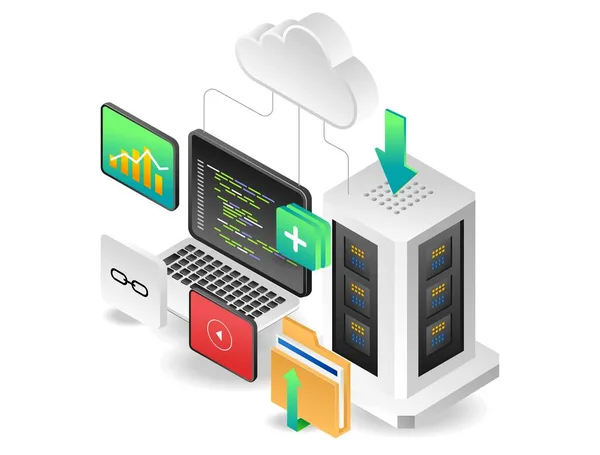Secure Your Oracle Apps with Best Practices
In the digital era, where organizations are increasingly relying on data and software applications for business operations, the importance of application security cannot be overstated. One such widely-used suite of software applications is Oracle Apps. Used by businesses around the globe, Oracle Apps consist of a comprehensive suite that includes numerous modules offering an array of functionalities. As these apps handle a wide array of sensitive data, it’s critical to ensure their security. This article delves into the importance of Oracle App security, the threats challenging its safeguarding, the significance of best practices, and the ways to implement robust security measures.
Understanding The Importance of Oracle App Security
Oracle Apps are an integral part of many organizations, housing sensitive data such as financial information, customer details, and proprietary business data, all of which are potential targets for cybercriminals. If these apps aren’t secure, the risks can be tremendous, ranging from financial loss to reputational damage, regulatory penalties and loss of customer trust. Additionally, as organizations become more interconnected, insecure apps can put not only your organization but also your partners and customers at risk. Therefore, securing Oracle Apps is crucial to safeguard your business from potential cyber-attacks, ensure data privacy and compliance with regulatory requirements.
Key Factors That Pose Threats to Oracle Apps

Several factors pose threats to Oracle Apps. These include unpatched vulnerabilities, weak passwords, inadequate access controls, and lack of security awareness among users. Hackers often exploit unpatched vulnerabilities in software to gain unauthorized access, while weak passwords and inadequate access controls make it easier for them to infiltrate systems. Additionally, users who are unaware of security best practices can inadvertently expose systems to risks. Phishing attacks, for instance, can trick users into revealing their login credentials, giving attackers the keys to your proverbial kingdom.
Why Best Practices are Critical for Oracle Security
- Best practices are a proactive approach towards securing Oracle Apps, helping an organization to anticipate potential threats and mitigate them.
- They guide organizations on key aspects such as access control, data encryption, regular patching, and user training.
- By following these practices, organizations can ensure that their apps are secured from multiple angles – from the infrastructure level to the user level.
- Furthermore, best practices help in maintaining compliance with various regulatory standards, reducing the risk of hefty penalties and legal complications.
Implementing Robust Security Measures for Oracle Apps
To secure Oracle Apps, it’s essential to implement a comprehensive strategy that includes technical and administrative measures. Regular patching helps to address known vulnerabilities, while strong passwords and multi-factor authentication can prevent unauthorized access. Role-based access control can ensure that users only have access to the information they need, reducing the risk of data leaks. Meanwhile, data encryption protects information in transit and at rest. On the administrative side, regular audits can help identify potential security gaps, and user training can enhance awareness about potential threats and appropriate responses.
| Best Practice | Description |
|---|---|
| Regular Patch Updates | Keep Oracle applications up to date with the latest security patches to fix known vulnerabilities. |
| Role-Based Access Control | Restrict user access based on roles and responsibilities to minimize risk. |
| Audit and Monitoring | Implement logging and continuous monitoring to detect and respond to suspicious activities. |
| Data Encryption | Use strong encryption for data at rest and in transit to protect sensitive information. |
| Strong Authentication | Enforce multi-factor authentication (MFA) to enhance user verification and prevent unauthorized access. |
Case Studies: Effective Oracle App Security Practices
There are numerous examples of organizations effectively securing their Oracle Apps. For instance, a global financial institution implemented a robust access control system, ensuring that its employees could only access the data necessary for their roles. Meanwhile, a healthcare company employed data encryption to protect patient data, and a retail giant used regular patching to address vulnerabilities. These case studies highlight how a comprehensive, proactive approach – combining technical measures with administrative ones – can significantly enhance Oracle App security.
Maintaining Oracle App Security: An Ongoing Task
Securing Oracle Apps is not a one-time task but an ongoing process. As new threats emerge and technologies evolve, what worked yesterday may not be sufficient tomorrow. Therefore, organizations should regularly review and update their security measures, conduct periodic audits, and invest in continuous training for their staff. Furthermore, they should stay abreast of updates from Oracle and promptly implement patches to address new vulnerabilities. Ultimately, maintaining Oracle App security requires a commitment to continuous improvement and vigilance against potential threats.
In conclusion, Oracle App security is of paramount importance in today’s digital age. By understanding the threats and implementing best practices, businesses can significantly reduce their risk and protect their valuable data. Remember, maintaining Oracle App security is a continuous process requiring consistent and dedicated efforts. However, with the right strategies and commitment, organizations can ensure the protection of their Oracle Apps, thereby securing their critical business data and systems from potential cyber threats.